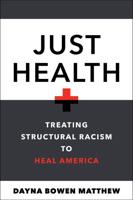Publisher's Synopsis
This book provides a nuanced, critical analysis of desistance from crime, particularly through the lens of women's experiences. It develops desistance theory by interrogating the concept of normalcy, highlighting how normative societal expectations cause harms on desistance journeys. Through this lens, the book uncovers tensions between desistance as a journey towards societal (re)integration and the resistance desisters experience when encountering state institutions and social norms. Being no longer part of the old life, and not yet part of the new, desisters face both familiar and unfamiliar harms.
A key conceptual contribution is the book's critique of normalcy as both an aspirational and oppressive goal. The work illustrates how the pursuit of mainstream inclusion can expose desisters to both new and continuous harms. These include surveillance and stigma, social and literal death, gendered violence, and economic precarity. By engaging with feminist and temporal criminological theories, the book sheds light on how desisters' experiences reveal the dark side of normalcy, calling into question whether its pursuit is wholly desirable.
With its focus on the intersections of gender, stigma, and social control, this work advances academic debates on desistance, proposing a rethinking of how criminal justice systems and support frameworks engage with those transitioning out of criminalized lifestyles. It will appeal to students and scholars of criminology, desistance, gender studies, recovery from addiction, and to practitioners and policy-makers in these fields.











